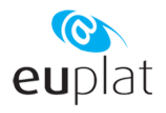- The new Directives on Public Markets (classic sectors, special sectors and concessions) approved by the European Parliament on 15 January 2014 are a very important step to promote vast and diversified processes of change to pursue the strategy of EU 2020 and to achieve key objectives clearly presented during the discussion and press conference :
- Introducing public contracting requirements for full compliance with labor, social and environmental laws;
- Increasing transparency and efficiency through the adoption of e-procurement;
- Reducing the bureaucratic load through new instruments such as the European Single Procurement Document (ESPD) for economic operators;
- Offering a more flexible and diversified list of procedures making use of best practices of private sector such as electronic catalogues;
- Contributing to stimulate innovation and to deal with nonstandard contract objects through the inclusion of procedures such as the competitive dialogue, the competitive procedure with negotiation and the partnership for innovation;
- The adoption of a multicriteria approach to evaluate tenders giving special attention to quality and life cycle costing in order that the evaluation just based on price will be avoided so often as possible;
- The consideration of criteria representing professional capacity and experience to select candidates and to evaluate tenders as well as the adoption of performance based contracts ,with the objectives of improving the effectiveness and the efficiency of public contracts stimulating innovation and the participation of SMEs in Public Markets.
2. This new legal framework will imply multiple processes of change of all actors playing important roles to achieve its effective transposition and implementation , namely national regulators, public contracting authorities, central purchasing bodies , economic operators , auditing or inspection institutions and providers of electronic services fulfilling all requirements. Actually, according to the new Directives ,the whole sequence of tasks required to form a public contract will have to be supported by more effective electronic systems to handle, to treat ,to communicate and to produce key information and knowledge, namely to:
- Disseminate through the web all opportunities offered by public markets, allowing direct downloading all relevant documents without restricting their legal validity as it happens now quite often through “small lettering” included in many sites of public contracting authorities;
- Provide easy and secure systems to implement e-tendering;
- Organize lists of requirements and of qualified economic operators complying with labor, environmental and social laws;
- Collect and to provide the information required to issue the European Single Procurement Document;
- Collect and to provide the information required to implement the criteria for selection of candidates considering previous professional experience or technical and economic capacities;
- Model multicriteria evaluation systems of tenders giving special attention to quality, service conditions and life cycle costing and to estimate corresponding descriptors and scores;
- Implement interactive and electronic processes supporting negotiation procedures with full transparency and equality of treatment;
- Implement electronic procedures such as electronic catalogues, dynamic acquisition systems and multicriteria auctions;
- Collect ,to treat and to communicate all relevant data to national or regional portals;
- Collect, to treat and to send all relevant statistical information to the European institutions.
- Carry out training programs adapted to the needs of each actor to master the new tools and the new procedures.
Obviously, all these tasks are critical challenges to the development and to the provision of services by electronic platforms and therefore the dynamics of the market of these services should produce more flexible, innovative, cross-border, easily accessible and diversified profiles of services meeting the specific requirements of each actor, being either a small or a large buyer/seller, and for the formation of each contract, either small or complex and expensive.
The European association of e-platorms , EUPLAT – www.euplat.org -was established after the meeting of 16 e-platforms held in the end of the 1st European Conference on E-Public Procurement , March 2013 (www.opet.pt) and will be a key player to contribute to the sustainable and effective development of this market which will be of paramount importance to achieve effective and efficient implementation in each Member State of the whole spectrum of deep and innovative changes required by the Directives on public markets approved by the European Parliament.



